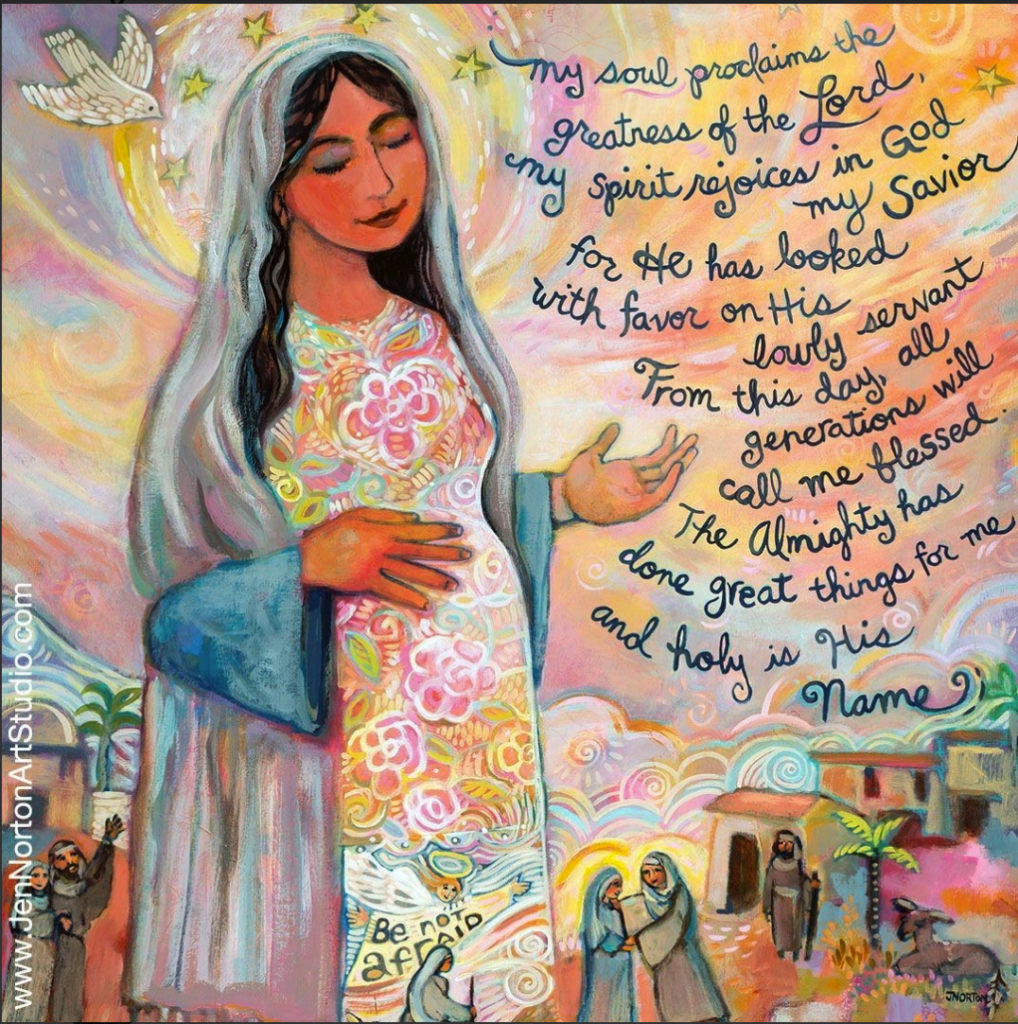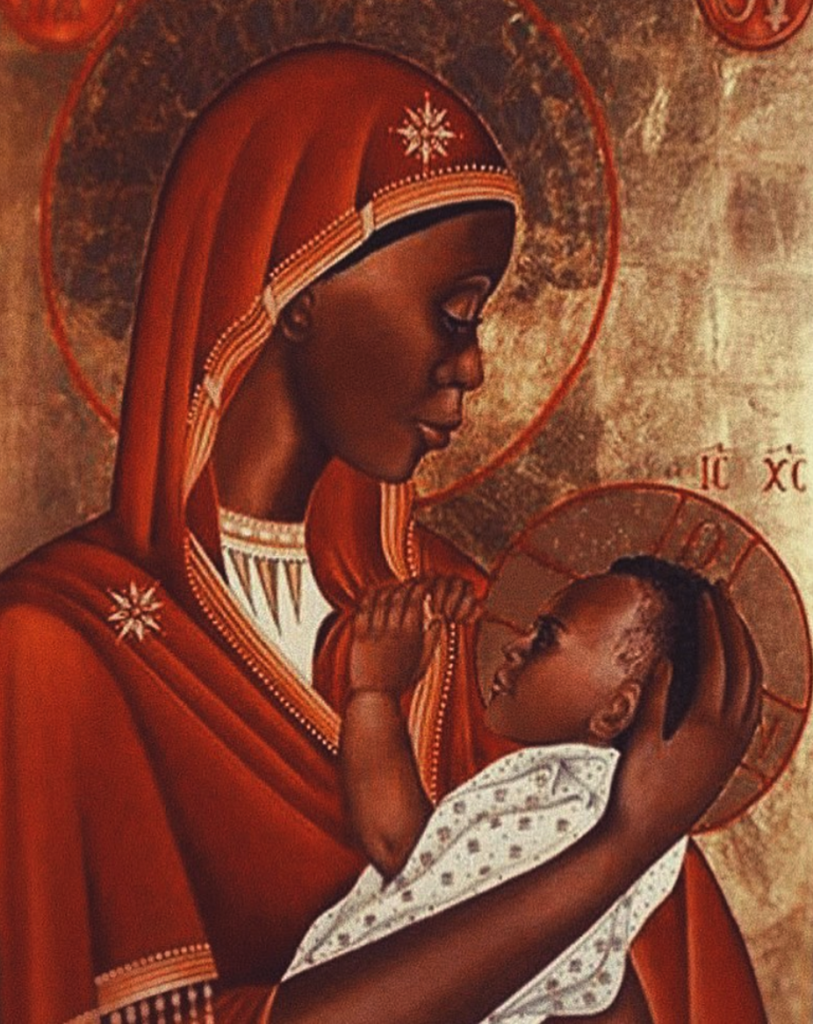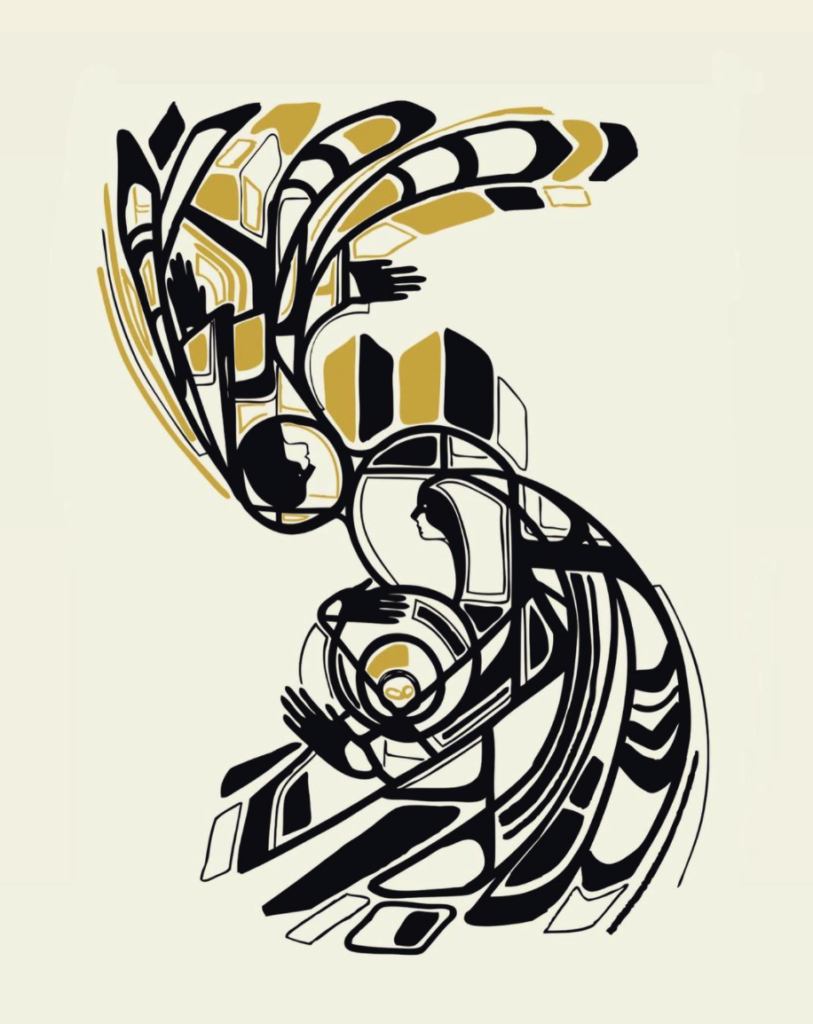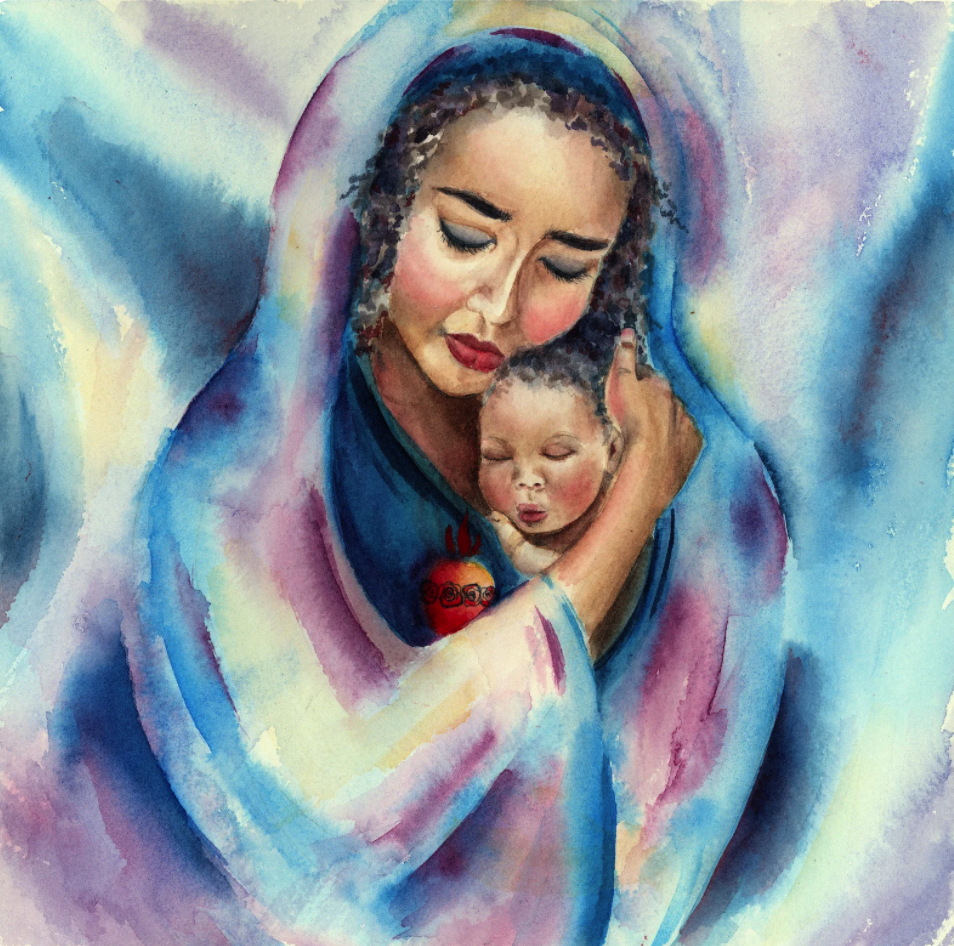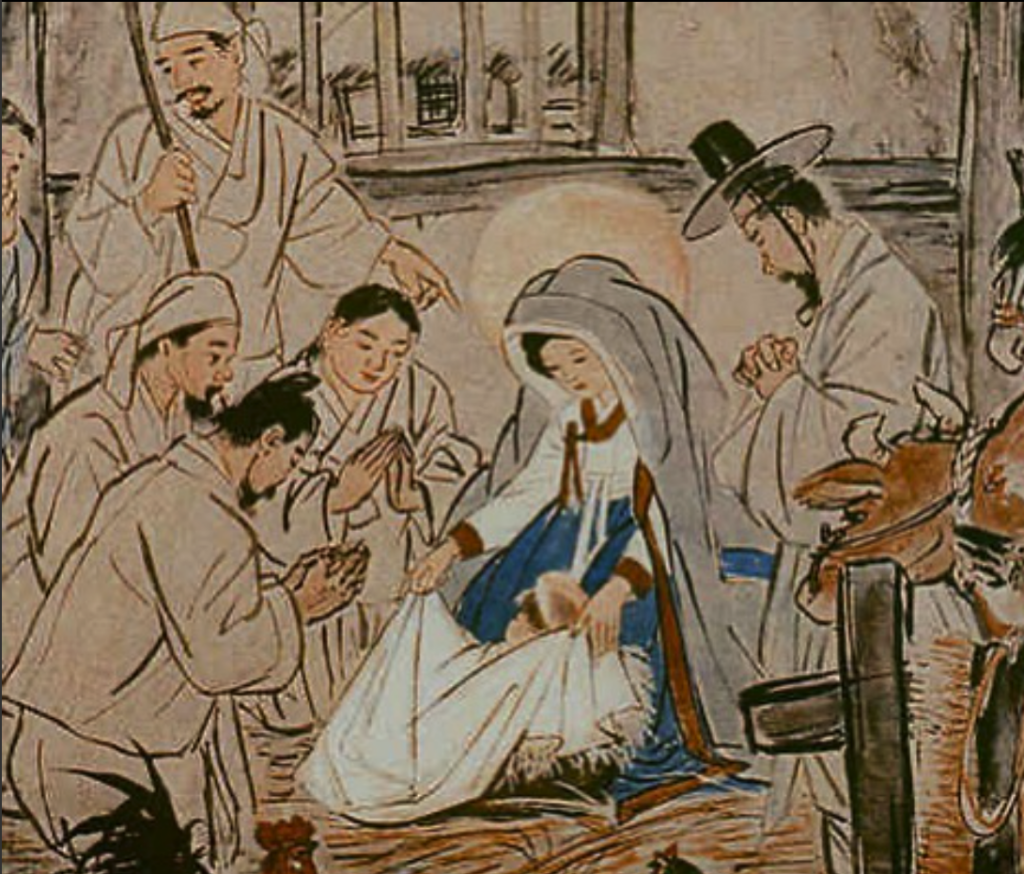
Welcome to #ccdaAdvent.
CCDA invites you to consider what the hope of Advent meant for the women who were a pivotal part of Jesus’s birth. Join us in a communal reflection on the very real ways Jesus’s birth and incarnation required an unexplainable hope during a season of waiting and darkness.
Each devotional will include a reflection, breath prayer, art, and worship. We pray that the reflections and prayers within these Advent devotionals bring renewed inspiration, anticipation, and hope in the Kingdom of God that has come and is to come. Amen.

And Mary said, “My soul proclaims the greatness of the Lord. My spirit rejoices in God my savior for he has looked with favor on his lowly servant. From this day all generations will call me blessed. The Almighty has done great things for me and holy is his name.”
Luke 1:46-49
Devotional written by: Alma Lizette Cárdenas-Rodríguez, CCDA Writing Team
As I think back to when I was pregnant with my daughters, Esther and Abigail, and to when I held them for the first time, I think about how my season of waiting did not end after their births. Although my relief from carrying them and waiting for their arrival had come to an end, I did not anticipate the waiting that comes with seeing who they will become in every aspect of their lives. These things become clearer as they grow.
As I reflect on Mary’s Magnificat in the book of Luke during this Advent season, I cannot help but think of how valiente (brave) and atrevida (daring) she was for vulnerably doing that. She prophetically sang in the midst of the fear of having conceived in a way no one had ever seen or heard before, and in the midst of the shame it would surely bring to her family and community. I imagine her constantly thinking of the possibility of having to be a single mom, and yet, she still had the audacity to speak life into her child, her gift within. For that moment, Mary’s voice was unchained from reason, and she gave herself permission with this song to paint a picture of who she was, instead of who she wasn’t. Even when the situation was viewed by others as a curse, she sang about who this child would become and how he would contribute to this earth. I wondered if she was able to sing this because, as they say, “we carry memory in our blood.” Perhaps, the memory in her blood reminded her of stories, prayers, visions, and dreams that the women before her left behind. The dreams of a promised Messiah, like a canvas passed down from generation to generation to be painted, with a renewed or reimagined vision for every generation’s time.
I imagine Mary’s song being the lullaby that would quiet her and her child to sleep from the womb. The lullaby that would quiet the circumstances that tried to keep her without peace and hope late at night entre mocos (among boogers) y llanto (and weeping).
Advent is new to me. As a Latina who grew up in a Pentecostal church, the wait and discomfort of Mary’s reality and song were altogether skipped to the hope and birth of Jesus every Christmas season. This year, as the season of Advent began, I was at a church when we were handed the image above from the book Honest Advent by Scott Erickson. As I entered into a visio divina with the image, I was inspired to write this poem:
Concebida en el Aguante/Conceived in the Waiting
Mary, an image of you
awakened a soul from her sleep.
To step into all that she gets to dream.
I felt so humanized.
I felt relieved from having to conform.
To the ideas and dichos such as
“Mejor diablo conocido que diablo por conocer”,
(better a devil known, than a devil that is yet to be known)
that protect fears dressed as norms. Algo se movió en mi interior (something moved within me).
As a baby in a womb kicking for the first time.
The body’s organs working for us both, overtime.
A bearer of hope.
Another veil falling, a clear vision for my eyes.
Peeking its head as a tree
beginning to sprout from the ground,
as it simultaneously roots down.
Even if I do not get to see what she’ll become,
The form, her scent, or the fruit she’ll bear.
Even when if I do not get to partake
in the healing powers of her leaves as a tea
and be nourished by her fruits,
or be shaded by her fullness as she becomes a resting place.
Sueños, concebida en el aguante.
Dreams, conceived in the waiting.
What if we get to dream in the waiting? What if, in the middle of our sleepless and darkest nights, God asks us to break out in a song like Mary, birthing a dream that fosters hope and life? What if this dream is the picture of what is to come, even if we don’t get to see it in its fullness? My friends, what dreams could be conceived in the waiting?


How do we dream during a pandemic?
Dive deeper with our panel from the summer here: Catalyzing the Moment

